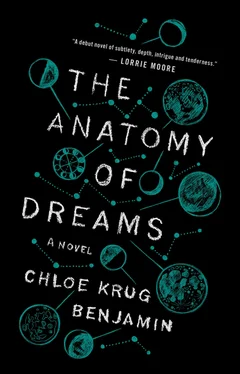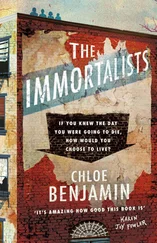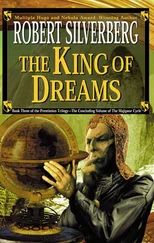“It’s fine,” I said. “You certainly have the right to ask questions.”
“Thank you,” said Thom.
I knew he was trying to pull me out of whatever cramped box I had gotten myself into. But what I needed was some way to trust him. This arch, impish Thom I didn’t trust; but I remembered the way he had recited the Keats poem at dinner—or started to, anyway—his voice a heavy, kicked-along stone.
“What was the rest of the poem?” I asked. “The Keats poem, the one you mentioned at dinner?”
In his face there was both pleasure and surprise; he looked like a boy who did not often know the answers in class but who, called upon this time, had only to open his mouth.
“‘In spite of all,’” he said, “‘some shape of beauty moves the pall from our dark spirits.’”
“I thought it would be more positive,” I said.
“But it is,” said Thom.
From downstairs there came sounds of laughter: Gabe’s raucous and guttural, Janna’s climbing higher octaves. When we walked down, Gabe’s head was hanging back, his shoulders shaking.
“Janna was just telling me—she was telling me—” It was a kind of laughter I rarely saw in him: keeled over, full body. “It was a terrible joke . . .”
They were sitting at the table, bowls of half-eaten blueberry soup in front of them. Janna crossed her hands in front of her, trying to quiet him. Then she turned to Thom and me.
“Three children walk into the woods,” she said. “But only one child returns, carrying a bag of bones. The child’s mother says, ‘Whose bones are those, my darling?’ And the child looks at her and beams and says, ‘The ones who walked too slow.’”
She grinned. The points of her canine teeth reminded me of a cat. Thom shook his head.
“It’s awful,” said Gabe. But it took minutes for him to quiet down, and even when he did, little puffs of laughter escaped into the night.
5. BERKELEY, CALIFORNIA, 1999
In August of 1999, I arrived on the UC-Berkeley campus along with five thousand other freshmen. I carried with me my dad’s beat-up blue duffel bags and a leather backpack with a magnetic closure, which my mother bought to replace the corduroy JanSport I’d carried around at Mills. I can still picture the softened blue fabric, which had lost all sense of structure from years of carrying my color-coordinated binders and drawn-on, heavy books—none of which I’d brought to Berkeley, believing their lessons behind me.
There was a tangible feeling of precipice that fall. By 1999, theories of climate change had made their way to Rutgers Newark, where my parents taught. Earlier that year, some of their colleagues had attended the Intergovernmental Panel on Climate Change, and over the summer, the heat wave that swept the northeastern U.S. killed forty people in Philadelphia alone. Now they complained about the weather in Berkeley, saying it was too cold for summer in California, that fifty-nine degrees wasn’t natural , and even though I reminded them that the coldest winter Mark Twain ever saw was the summer he spent in San Francisco—and he had lived in the 1800s—they merely squinted at the campus, uncomforted.
It was more than just the weather, of course. As we drew closer to the year 2000, even the most skeptical among us wondered what the millennium would bring. In my psychology course, we spent a unit on millennium predictions—the Tribulation, the second coming of Christ, the war of Armageddon. Some of the other students complained of nightmares. But I found myself magnetized by the predictions, the Rapture especially—all of the living and born-again dead rising into the sky like paper lanterns, their bodies lit from the inside and translucent as white sheets.
Still, there were moments when all this was forgotten, when we gathered close to the radiator in somebody’s room and told stories from what felt like our past lives. My years at boarding school lent me a new exoticism. Even mundane details—the hall monitors, the curfews, the night privileges that came with senior year—took on a new, storied life when told to an audience who had only ever lived with their parents. My roommates—Donna, a pole-vaulter from Texas, and a Southern California transplant named Mallory—wanted to know how I’d ended up at boarding school in the first place. But when I told them that I went to Mills not because I showed exceptional promise, like the recruits, but because my father had gone there and received a hefty discount on my tuition, they seemed deflated.
“Oh,” said Mallory from the bunk bed above Donna’s, turning again to her San Francisco magazine. She’d ordered it to be sent to her university mailbox despite the fact that we lived in Berkeley, an hour away by train. “So you were a legacy.”
I’d heard the term before, but I’d never really thought it applied to me. I found little in myself of my father’s legacy. Thin and heavily bearded, he studied cuneiform script and made a hobby of erecting tiny wooden ships in glass bottles. When I was little, I thought it was a miracle, and he wouldn’t show me otherwise—he presented them to me when he was finished, gleaming with pride, and I gaped at the size of the ship inside and how it was so much larger than the neck of the bottle.
Years later, on one of the shared computers at Mills, I used the Internet to look up how they were made. At home, we used a noisy dial-up modem that required use of the telephone line, so my brother and I were restricted to a half hour each night. Plus, it worked so slowly and theatrically that it was more of a family joke than anything else; Rodney and I had memorized the jerky song of its connection process and parroted it back and forth while setting the table or getting ready for bed. So when I got to Mills, where we could use the high-speed Internet in the library, I couldn’t believe what I’d been missing out on. It was so easy to find information, so easy to solve any problem, that I was almost afraid to trust it. The hierarchical structure of boarding school had taught me that information had to be vetted—by a textbook, by an instructor, by an administrative higher-up—before it was accepted as truth. But I was excited by the Internet, too, its free and unchecked passages. It meant that learning could also be passed from the ground up. It meant, in a small way, insurrection.
When I returned home for Thanksgiving that year, I told my father I’d figured it out—that because the fully formed ship could never fit through the opening, the trick was to build it outside the bottle, with its sails and masts collapsed. Once you’d eased it inside, you pulled on a string that lifted the masts, and the whole ship unfolded and rose.
I thought he would be impressed. But he looked surprised and mildly hurt, as if I’d broken an agreement we had settled on years ago. He couldn’t blame me, I thought—the inflation technique now seemed so obvious that I couldn’t believe I hadn’t put it together before. But I was irritated about more than that. It felt unfair that our relationship rested on something as fragile and miniature as a handmade ship. And if it did, I didn’t think it was my fault.
I’d grown up with the expectation that when high school came, I’d go where my father had gone. I knew my parents thought my education was the most important gift they could give me, but it had consequences, too. My bedroom had begun to feel more and more like a childhood relic, with its museum-like inventory of past interests and art projects. My parents tried to plan special activities when I was home, but this made me feel even more like a guest. Other people knew what their fathers ate for breakfast and how to fight with their little brothers. Rodney and I saw each other so infrequently that we hardly knew which buttons to press, which ones had been updated and no longer worked the same way. We lived together like bears raised in domesticity, their wildness latent and confused, bears afraid to swipe for fear that they would only scrape at air.
Читать дальше












